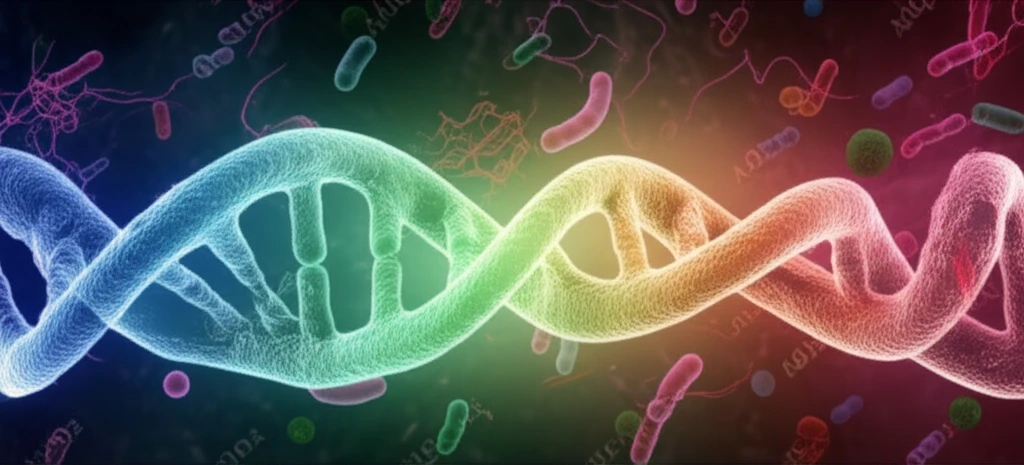
Decoding Your Gut: How Understanding Mucin Genes Can Revolutionize Digestive Health
"Unlocking the secrets of MUC2 and MUC6: A deep dive into how these genes influence gut health and potential treatments for inflammatory bowel disease and gastric ulcers."
Your gut is more than just a digestive system; it's a complex ecosystem that plays a vital role in your overall health. At the heart of this ecosystem are mucins, heavily glycosylated proteins that form a protective mucus layer. Think of this layer as the gut's first line of defense, crucial for maintaining balance and warding off disease. Among the most important mucins are those encoded by the MUC2 and MUC6 genes.
For years, scientists have struggled to fully understand these genes due to their highly repetitive nature. Traditional sequencing methods simply couldn't decipher the complex code, leaving gaps in our knowledge of how these genes function and how variations might impact health. But now, thanks to cutting-edge technology, we're finally piecing together the puzzle.
Recent research has successfully mapped the full-length sequences of the MUC2 and MUC6 genes, revealing critical insights into their structure, variability, and potential links to inflammatory bowel disease (IBD) and gastric ulcers. This breakthrough opens the door to new diagnostic and therapeutic strategies, offering hope for millions suffering from digestive disorders.
Why are MUC2 and MUC6 Genes So Important for Gut Health?

MUC2 and MUC6 are not just any genes; they are key players in maintaining the integrity of your gut lining. MUC2, primarily found in the small and large intestines, forms a dense barrier that prevents harmful bacteria and pathogens from directly contacting the epithelial cells. MUC6, on the other hand, is mainly expressed in the stomach glands, protecting the stomach lining from harsh digestive acids.
- Barrier Function: Acts as a physical barrier, preventing pathogens, toxins, and other harmful substances from reaching the intestinal cells.
- Lubrication: Facilitates the smooth passage of food through the digestive tract.
- Hydration: Maintains the moisture balance in the gut, preventing dehydration and promoting optimal digestive function.
- Immune Defense: Contains antibodies and antimicrobial peptides that neutralize pathogens and modulate the immune response.
The Future of Mucin Research: Personalized Gut Health
The ability to fully sequence and analyze MUC2 and MUC6 genes represents a major step forward in understanding the complexities of gut health. As research progresses, we can expect to see more personalized approaches to managing and treating digestive disorders. This includes developing targeted therapies that address specific genetic variations in mucin genes, as well as dietary and lifestyle interventions tailored to an individual's unique gut microbiome and genetic profile.
